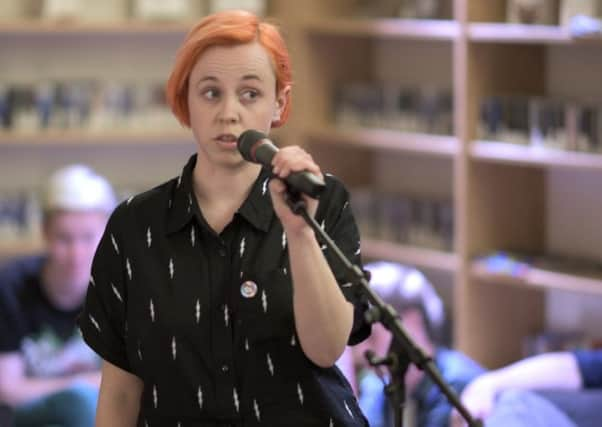Slam poets' open mic nights sweep the nation


With instant feedback and no need for the hassle and expense of finding a publisher, aspiring poets, especially those in the under-30 demographic, are signing up for the sessions in pubs, clubs, cafés, universities and church halls.
Open mic nights, complete with rappers, have also been hosted by Scotland’s prisons with plans being mooted for using prison radio to showcase prisoners’ contributions.
Advertisement
Hide AdMore than 60 poetry open mic nights are held in Edinburgh and Glasgow each month alone, with dozens more across the country, some in Gaelic and Scots.
The democratic art form, which has boomed over the past five years, also features “Insta-poets” such as Edinburgh-born former Scottish Slam Champion Iona Lee, Rupi Kaur, RM Drake and Amanda Lovelace. They post their work on Instagram to accrue millions of followers. The social media service features more than 19 million posts with the hashtag #poetry.
Colin Waters, the communications manager for the Scottish Poetry Library in Edinburgh, said the library’s God Damn Debut Slams, held every month for people performing new material, were attracting capacity crowds.
“Slam poetry is very conversational, very energetic, full of rough and tumble, less literary and tends to be about subjects which are very personal, political or observational,” he said. “This can cover the ‘hot button’ issues of the day from diversity to the fall-out from austerity.
“We’re looking at future stars in the making at the very start of their careers. You don’t have to have money to take part and younger people especially are responding to it.
“It’s a million miles away from ‘old school’ poetry readings, which usually see a well-known poet read from his or her work while the audience sits quietly listening before asking a polite question or two at the end.
Advertisement
Hide Ad“I’d say it’s a case of the times and art form chiming – very much cometh the hour, cometh the art form. Poetry has come through and found its voice.”
Data provider Neilsen Book Scan – which compiles publishing bestseller charts – has reported a hike of 66 per cent in the number of poetry book sales over the past five years, with more than a million books sold at a value of £11.1m.
Advertisement
Hide AdRyan Dobbin,of Fife College, which has a contract with the Scottish Prison Service to run education classes at Edinburgh, Polmont and Shotts prisons, said social media and open mic nights had changed the way people communicate.
An education project currently under way is focusing on the First World War and has seen some prisoners writing poetry, which is under consideration for broadcast, a radio play and producing art work on the theme.
One of the poems, ‘Promises Made Should Be Kept’, by a prisoner at Edinburgh Prison includes the verses:
Maps were redrawn, new states were formed overnight
Civil war, unrest, betrayal, no way to make things right.
The Brits wanted a Jewish “homeland” to be based in Palestine
750,000 Arabs later evacuated, but they were told all would be fine.
The conflict that followed persists to this very day
Tens of thousands left dead, but politicians still lead us all astray.
The blood-stained sand, unmarked graves and mother who wept
Advertisement
Hide AdWas not the fault of the Arab Revolt, but of promises not kept.
Dobbin said: “Prison reflects society and some people in prison, not a lot, might have already heard of the war poets like Wilfred Owen and Siegfried Sassoon who were based at Craiglockhart in Edinburgh.
Advertisement
Hide Ad“Social media and open mics have changed how people communicate, making people’s work more accessible.
“The barrier we have is that we don’t have the internet or social media, so we’re looking at recording some of the work for broadcast on prison radio.”